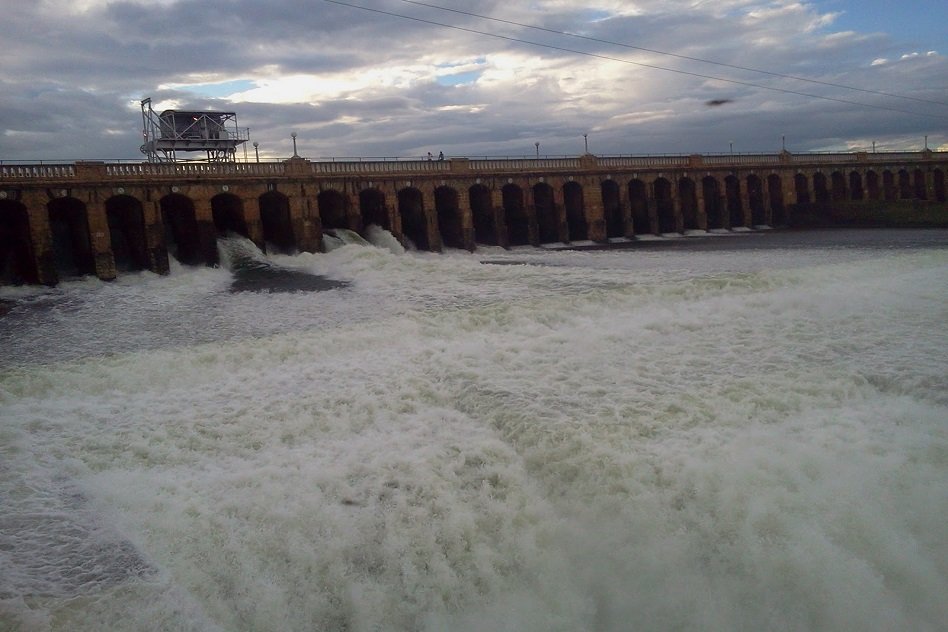
Sharing The Waters Of The Cauvery: An Alternative Vision And Approach
31 Oct 2016 7:35 AM GMT
A Joint Statement from Karnataka, Tamil Nadu and other places on the Cauvery.
We, a group of concerned citizens, deeply distressed by the escalating conflicts and the deteriorating public discourse over the sharing of the Cauvery, believe that an alternative vision and approach are needed for managing the waters of the entire river basin including but not confined to the visible flows in the river or allocations between States.
Such a vision for integrated water management in the river basin would be imbued with the universal goal of equitable and sustainable resource use and democratic governance, grounded in a hierarchy of principles, and draw upon a rigorous and nuanced understanding of the prevailing ecological and socio-economic situation in the basin.
A hierarchy of principles in the sharing of waters
- First,water for life: providing adequate water of acceptable quality for meeting the drinking, cooking and sanitation needs of all the people and animals in the basin.
- Second, water for the ecosystem: ensuring adequate water flows and water in the river system for aquatic life and other ecological functions.
- Third, water for sustaining livelihoods: enabling productive activities while ensuring equitable use and protecting public health.
- Fourth, water for adaptation to change: keeping reserves and margins for ongoing and future demographic,economic and land use changes and climate change.
A rigorous scientific understanding of the socio-hydrology
- Surface and ground water resources are an integrated flow and must be treated as such.
- Land use changes, groundwater pumping and diversions all affect river flows, so the focus must be on an equitable sharing of all the water, and not just the surface flow in the river.
- Year-to-year variability and variations across the basin (such as differences in the South West and North East monsoons) require nuanced definitions of distress years and strategies for such years, and cannot be done on a pro-rata basis.
- Variability and uncertainty caused by climate change requires a higher level of dependability (at least 75%) in all water management, and it should be considered not just in annual terms but at finer time scales.
A participatory and transparent process for deciding on water sharing
- Sharing the Cauverycannot be left to a centralised political or bureaucratic process alone; water governance must be democratic, decentralised and participatory.
- All information and data pertaining to water at all scales and locations—rainfall, runoff, evaporation, surface and groundwater stocks and withdrawals, land use and cropping—that is gathered by any agency using public funds must be publicly available.
- Collaborative networks of citizens, civil society organisations, academics and state agencies dedicated to analysing and communicating this information for use by decision-makers at all levels – village, town, taluk, district, state and basin—should be enabled.
We recognise that livelihoods and agricultural practices historically adapted to water-rich environments, whether in high rainfall regions of the Ghats or in the deltas and estuaries, are not easy to change. Yet, across the Cauvery basin, technological, economic and social change has been the norm over the last century. The intense pressure being exerted on the river is resulting in unsustainable and inequitable usage and cannot continue. Concerted and long-term efforts to manage, conserve, reuse and reallocate water are, therefore,essential.
We, the signatories of this statement, come from diverse backgrounds including social and natural sciences, engineering, policy advocacy and law, community organisation, journalism and science popularisation, but we all believe that sharing the waters of the Cauvery is not only a political, administrative and technical challenge but requires an alternative vision for the entire river basin and informed public discourse to transform conflict into cooperation.We sincerely hope that political, legal and administrative actions on sharing the Cauvery will adopt the alternative vision, principles and processes outlined in this statement and engage with wider networks in a democratic and transparent manner; and that these principles will be extended to other basins as well.
 All section
All section













